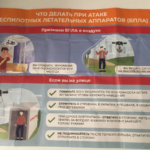National self-determination: how does Kosovo differ from Crimea?

In the UN Charter, the principle of equal rights and self-determination of peoples is enshrined as a generally recognized norm of international law. The science of international law does not yet give an unequivocal answer to the question how to ensure the harmonious unity of the implementation of the principle of self-determination of peoples and the principle of the states territorial integrity? On this basis, acute conflict situations arise.
Therefore, in practice, questions about the right of peoples to self-determination are resolved with the obligatory consideration of the provisions of several international conventions and treaties (Declaration on the Granting of Independence to Colonial Countries and Peoples, 1960, Declaration on Principles of International Law concerning Friendly Relations and Cooperation among States in accordance with the Charter of the United Nations, 1970, etc.). In accordance with the listed documents, the following peoples (but not the population of a separate territory) have the right to claim the creation of their own state:
• who are colonies;
• who do not have their own nation states;
• who do not have the opportunity to develop their national and cultural identity.
National minorities have the right to achieve within the states in whose territory they live, the creation for them of national and cultural or national and territorial autonomy, but not the right to self-determination, since according to current international law it does not belong to them.
Since there are no separate / special people of Donbass, but there is a population living in the territory of Donetsk and Luhansk regions of Ukraine, they have the right to develop their national and cultural identity. But to start an armed struggle with the central government of the country – no, it is impossible, it will already be separatism, coupled with terrorism.
In the same way, the Russian national minority in Bashkortostan, after the hypothetical collapse of the Russian Federation, can develop its cultural identity: create Sunday schools to study Russian language and culture, organize book publishing and establish various kinds of Russian-language media, arrange national holidays, etc. with the money of this minority or with the funds of fellow countrymen from abroad. Those who disagree and are violent will have to understand that demanding the creation of Russian national autonomy on Bashkort land is lawlessness, subject to punitive sanctions. In such a situation, Russian nationalists should either become Russian-speaking citizens of Bashkortostan, or arrange their autonomy on the territory of Russia / Muscovy (which will exist at that time).
All of the above also applies to Tatarstan. Developing national and cultural identity is allowed, arranging separatist enclaves with an eye to federalization or secession under the guise of “self-determination of Russian people of Tatarstan (Buryatia, Kalmykia, Chuvashia, Erzyan Mastora, etc.) is prohibited, alas. This nation has its own country, where they can freely speak Russian and live “in Russian way”.
Now, using an example, we will analyze what the violation of the above principles leads to.
Kosovo: it emerged as a means to end the bloody war on the territory of the disintegrated Socialist Federal Republic of Yugoslavia. There was no other way to stop the Albanian-Serbian massacre. The eviction of the Yugoslav Albanians to Albania was not an option! At the end of the twentieth century, this was no longer possible. To the greatest regret, the method of solving the problem proposed by the international community turned out to be seriously ill from birth. Within the autonomous region of Kosovo and Metohija, created on the territory of Serbia, inhabited by ethnic Albanians, Serbian enclaves arose that did not recognize the Albanian power of the region. The hot phase of the war has been stopped, but the enmity is smoldering. According to the US and some EU governments, the situation in Kosovo is unique and the recognition of its independence should not be a precedent for other self-proclaimed entities. As a justification for the uniqueness of Kosovo, US Secretary of State Condoleezza Rice cited a combination of the following factors: the general context of the disintegration of Yugoslavia, ethnic cleansing and crimes against the civilian population of Kosovo, as well as the long period of being under the UN administration for the region.
Crimea. In Ukrainian Crimea, everything was the opposite way. A war from abroad was brought into the peaceful region of the peaceful country. Through the imitation of a “referendum”, under the guise of the will of the “people of Crimea” (I remind you that there is a population, not the people), a foreign territory was seized. The forced annexation of Crimea, like the pseudo-referendum, is not recognized by the Ukrainian state and most countries of the world, is not recognized by the UN General Assembly, PACE, OSCE PA, and it also contradicts the decision of the Venice Commission. Russian authorities interpret these events as “the return of Crimea to Russia.” According to the Law of Ukraine “On Ensuring the Rights and Freedoms of Citizens and the Legal Regime in the Temporarily Occupied Territory of Ukraine”, the territory of the Crimean Peninsula is considered temporarily occupied as a result of Russian occupation.
Despite the apparent similarity of these two phenomena, they have a fundamental difference! In the first case, they acted out of good intentions in order to end the war, and in the second, they unleashed a war in order to steal territory from a neighboring state.


Leave a Reply